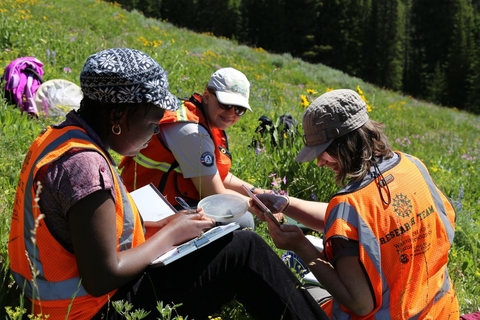Entomology is the study of insects. There are more insects on earth than there are people. Butterflies, dragonflies, bees, cockroaches, bed bugs and flies are just a few. Insects play a big part in our earth's ecosystem and food supply.
What can you do?
In the entomology project, you can:
- Study a species of insect.
- Explore diseases transmitted by insects.
- Learn about threats to insect survival.
- Investigate the benefits of insects - like pollinators.
These are just some of the many ways you can participate in this project.
Project information
Get started with 4-H'ers in your area
- Contact your local 4-H office for more info.
Get started on your own
- Begin your project learning with the entomology project resource guide.
- Reflect on your project and what you've learned using 4-H record keeping.
Ways to get more involved
- Enter an entomology project in a science or technology fair.
- Take part in an insect survey, such as the Minnesota Monarch Larva Monitoring Project.
- Organize a group of people to plant a butterfly garden. Make a plan for maintaining it.
Project opportunities near you
Get in touch with your local 4-H office to learn about entomology project events and activities in your area.
Interested in getting involved as an entomology project volunteer?
Contact your local 4-H office or learn more about volunteering in 4-H.
Resources for supporting youth in entomology
- Environment and earth science curricula in the youth development curriculum library
- National 4-H natural resources and environmental education curricula
Fair information
What does it mean to show at the fair?
For 4-H'ers, local and state showcase events (like the Minnesota State Fair) are not just fun events. They provide youth opportunities to exhibit the knowledge and skills they've gained throughout the year– and to continue their learning.
Contact your local 4-H office for entomology project showcase opportunities near you.
Exhibit ideas and judging criteria
Get exhibit ideas and find out what the judge is looking for in the evaluation sheet.
Reviewed in 2023


